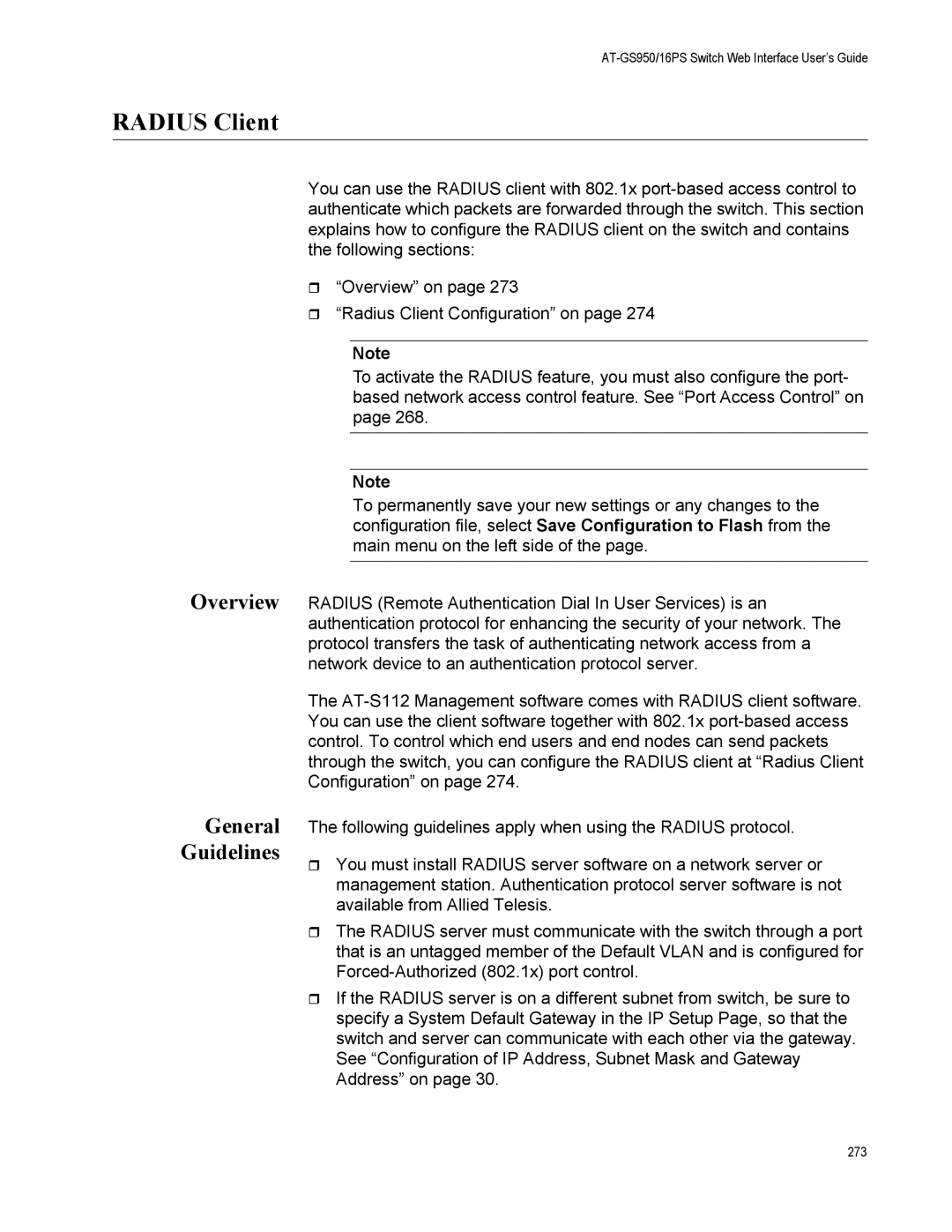
AT-GS950/16PS Switch Web Interface User’s Guide
RADIUS Client
Overview
General Guidelines
You can use the RADIUS client with 802.1x
“Overview” on page 273
“Radius Client Configuration” on page 274
Note
To activate the RADIUS feature, you must also configure the port- based network access control feature. See “Port Access Control” on page 268.
Note
To permanently save your new settings or any changes to the configuration file, select Save Configuration to Flash from the main menu on the left side of the page.
RADIUS (Remote Authentication Dial In User Services) is an authentication protocol for enhancing the security of your network. The protocol transfers the task of authenticating network access from a network device to an authentication protocol server.
The
The following guidelines apply when using the RADIUS protocol.
You must install RADIUS server software on a network server or management station. Authentication protocol server software is not available from Allied Telesis.
The RADIUS server must communicate with the switch through a port that is an untagged member of the Default VLAN and is configured for
If the RADIUS server is on a different subnet from switch, be sure to specify a System Default Gateway in the IP Setup Page, so that the switch and server can communicate with each other via the gateway. See “Configuration of IP Address, Subnet Mask and Gateway Address” on page 30.
273
